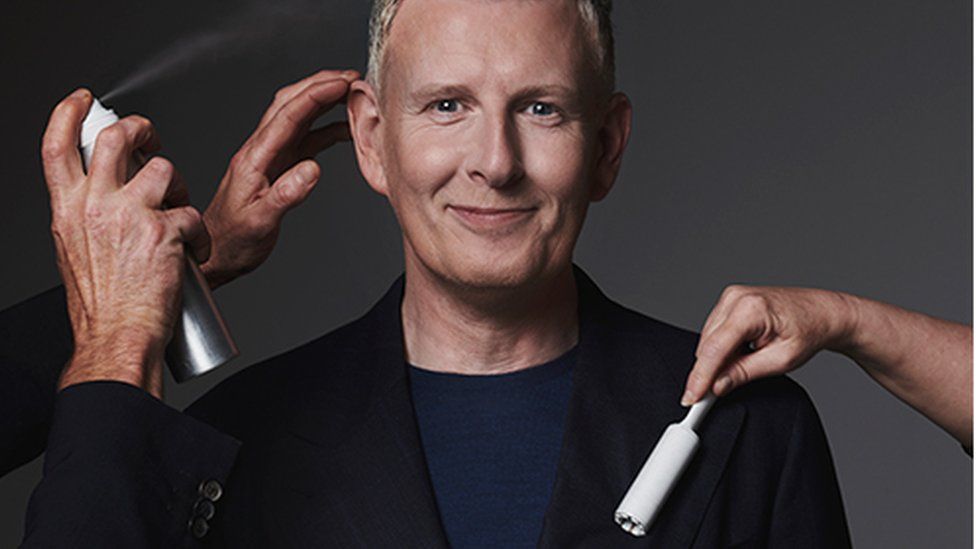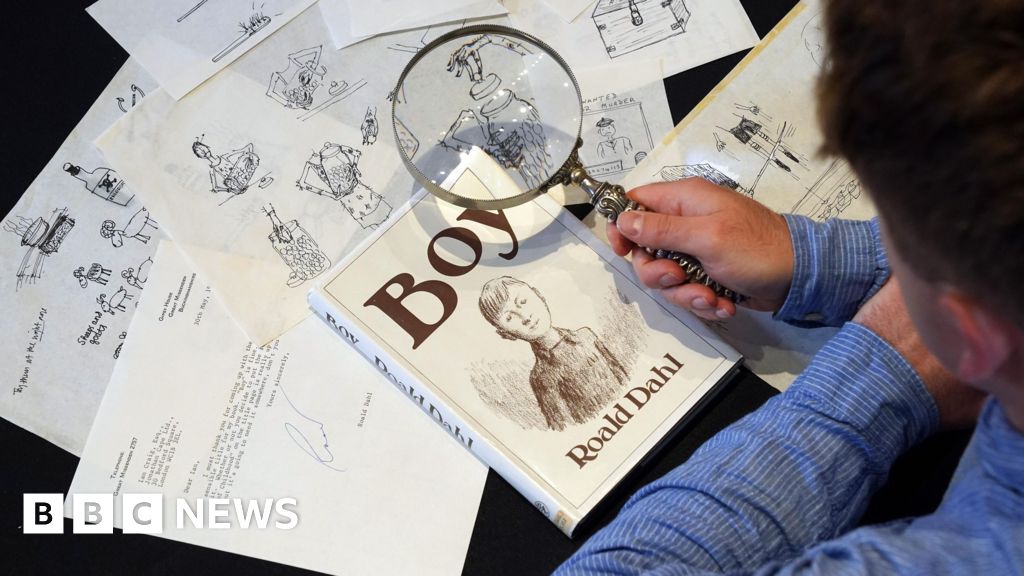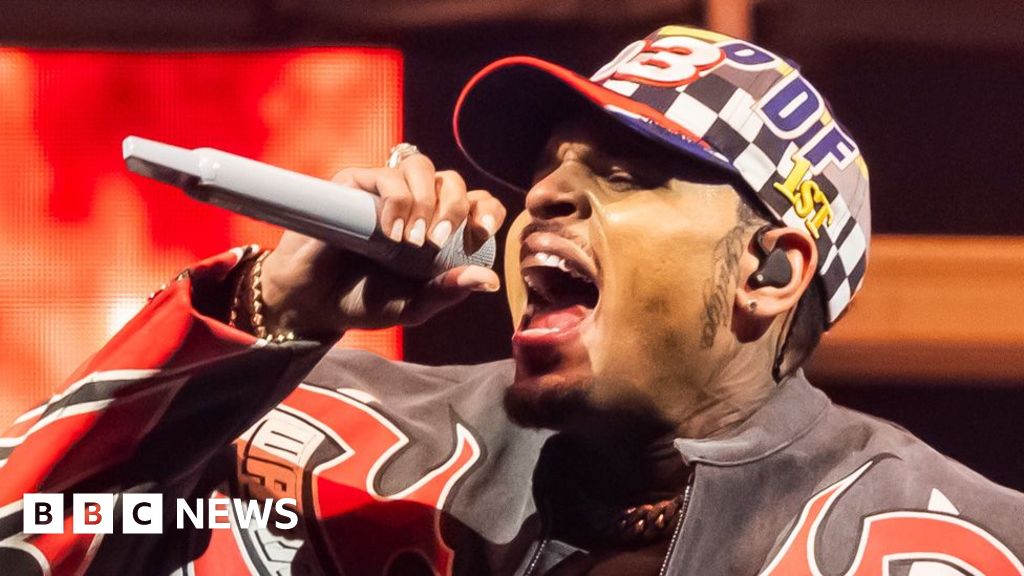ARTICLE AD BOX
 Image source, Matt Crockett
Image source, Matt Crockett
Patrick Kielty says taking over the show is a huge honour
By Claire Brennan
BBC News NI
Patrick Kielty takes over RTÉ's Late Late Show this Friday.
The County Down comedian will be the fourth permanent host of world's longest running live chat show - and the first to come from Northern Ireland.
During an emotional interview with RTÉ on Sunday, Kielty said it was a "pinch me moment".
But will it feel like a familiar return to a weekly tradition, or will he strike a fresh tone?
This Twitter post cannot be displayed in your browser. Please enable Javascript or try a different browser.View original content on Twitter
The BBC is not responsible for the content of external sites.
'Huge shoes'
The 52-year-old has described the Late Late as "one of the greatest jobs in television" and acknowledged he had "huge shoes to fill".
Conceived in 1962, the programme strived to emulate late night American talk shows.
The Late Late Show turned a young Gay Byrne into a household name
Initially intended to be a summer filler for RTÉ, it proved so successful that it became part of the broadcaster's regular schedule.
Beyond a fireside chat
While Ireland in the 1960s was a rapidly changing place, it remained predominantly conservative and Catholic.
"Ireland was one-television land, a very monochrome and bleak world," according to Dr Finola Doyle-O'Neill, a broadcast and legal historian at University College Cork.
Although the Late Late is often seen as a "conduit of Irish society" that was not the initial intention, she added.
"When it started up in 1962 it was supposed to be a fireside chat. Suddenly it went beyond the parameters of that."
Its original host, the late Gay Byrne, was renowned for his sense of humour and gift for conversation, but he was not content with simply interviewing celebrities.
Instead he ventured into more serious - and often contentious - territory, inviting politicians and public figures on to challenge old viewpoints on sex, religion and politics.
"He was the executive producer as well. He chose the guests. He had the ultimate veto," Dr Doyle-O'Neill said.
Image source, RTE
Image caption,Gay Byrne held up a condom to the camera famously labelling it "the dreaded object"
One of the show's most memorable moments was in 1987 when Byrne held a condom up in front of the studio audience, during a discussion about the AIDS crisis.
Some were shocked, but many believed he was the voice of a new and modern Ireland.
"In effect, he introduced one side of Ireland to the other," said Dr Doyle-O'Neill.
Staying relevant
In the decades that followed, the show remained appointment viewing, shifting between a Friday and Saturday night slot.
During his 37 years at the helm, Gay Byrne cemented the Late Late's position in Irish culture and made it a key revenue raiser for RTÉ.
He stepped down in 1999 and was followed by Pat Kenny, who fronted the show for 10 years.
Image source, RTÉ
Image caption,Ryan Tubridy announced he was stepping down in March
Byrne's successors stuck to roughly the same format, mixing entertainment with current affairs.
This eclectic approach makes the programme incomparable to other talk shows, according to Rory Cashin, entertainment editor at Joe.ie.
"We understand the American version, where a comedian will talk exclusively to famous people.
"We have the Graham Norton Show, or the Jonathan Ross Show. The Late Late Show can have celebrities on there, but it can have news and current affairs.
"It can be very funny one minute, and absolutely heart-breaking the next.
Viewing figures have remained steady over the years, but as Ireland has modernised, the show has struggled to maintain its relevance.
Image source, PA Media
Image caption,Cork man Graham Norton hosts a celebrity chat show on BBC One on Friday nights
"The new Late Late Show will need more of a social media presence. It can't hide away from the fact it has to bring in a younger audience," said Dr Doyle-O'Neill.
"It's longevity is due to the fact that Ireland is a nation of talkers.
"But the talk show format is generally suffering around the world... because everything has been done before.
"If Patrick Kielty could get a format that's unique to him. Graham Norton has his red chair - something that nobody else is doing."
Who is Patrick Kielty?
A comedian from Dundrum in County Down, Kielty certainly has the right credentials for late night TV.
He made his first steps into stardom at the Empire Comedy Club in Belfast and from 1999 to 2003 he fronted Patrick Kielty Almost Live on BBC One.
He also co-hosted talent show Fame Academy with English presenter Cat Deeley.
The pair later became a couple and married in 2012, living and working in London and Los Angeles.
Image source, Mike Marsland
Image caption,Kielty will be commuting to Dublin from London, where he lives with Deely and their sons
Kielty often watched the Late Late as a child and one of his first TV gigs was as a guest on the show.
But while he is familiar with the format, his background differs from his predecessors.
"They're all from the national broadcaster system, whereas Patrick Kielty does feel like a step in a new direction," said Rory Cashin.
"People would associate him more with being a comedian.
"It will be interesting to see if he will bend to what the show is, or if the show will start to bend to Patrick Kielty's skills," he added.
"Will it go a more Graham Norton route, or will it force Patrick into a more serious tone?"
Image source, RTE
Image caption,Dubliners Pat Kenny, Gay Byrne and Ryan Tubridy all came from the RTÉ system
Kielty has spoken candidly of his experience growing up during the Troubles.
In 2018, he fronted a BBC documentary about his father's murder by loyalist paramilitaries and earlier this year was interviewed by fellow comedian Tommy Tiernan about his views on a united Ireland.
On Sunday, he told RTÉ the Late Late offered a "window of normality" to viewers in Northern Ireland during the conflict.
"So to be able to walk out and host that show - big deal," he added.
Dr Doyle-O'Neill said it was important the programme was "absorbed by someone who was a bit different".
"Until now, the Late Late Show has predominantly been associated with the Republic of Ireland," she told BBC News NI.
"We're going to have to attune ourselves to a different accent, to a different perspective.
"But that's all good. We need to have that level of diversity.
"He is political but whether he's able to use those gears will be interesting."
Will the show be revamped?
Following the departure of Ryan Tubridy and subsequent revelations about his pay, RTÉ's reputation has taken a battering.
Its new director Kevin Bakhurst will be hoping Kielty's arrival provides a fresh start that keeps audiences and advertisers interested.
This YouTube post cannot be displayed in your browser. Please enable Javascript or try a different browser.View original content on YouTube
The BBC is not responsible for the content of external sites. YouTube content may contain adverts.
"There is some messiness around Ryan at the minute and it's still not fully resolved," said Mr Cashin.
"So it will be interesting to see if they will try much harder to make it feel different because of that.
"More people will be watching this comeback episode than have done for a while, so now would be the time to show big change is coming."
One element that is returning is the Late Late Toy Show - an iconic Christmas tradition which sees the host interview young guests as they sample the season's most sought after toys and gadgets.
The main show will also be shortened to 90 minutes.
Image source, Matt Crockett
Image caption,The guests for Friday's return show have not been announced
Rory Cashin said Irish people were "psyched" to see what Kielty will do.
"I'd be very surprised if there wasn't a big name on that first show," he said.
"I'm not sure Patrick on his own will change the viewership or the demographic: Patrick, plus whatever interesting guests they can bring on," he added.
Dr Doyle-O'Neill said she believed Kielty had more in common with Gay Byrne than other hosts.
"It's because of their love of comedy, their love of stand up... their interest in politics and their ability to warm up an audience."
But can Kielty marry the old with the new?
"This is a bit like changing the colours of the Irish flag," she said. "This is going to be really sensitive. There's a huge remit on him.
"Uneasy lies the head that wears the crown."

 1 year ago
41
1 year ago
41








 English (US) ·
English (US) ·